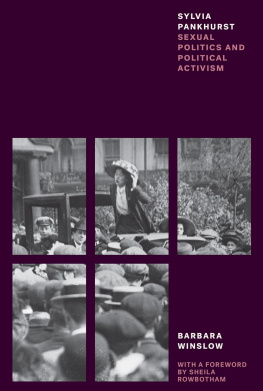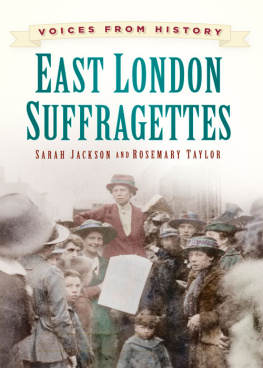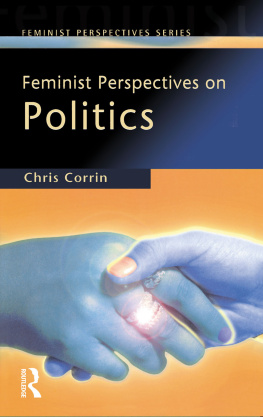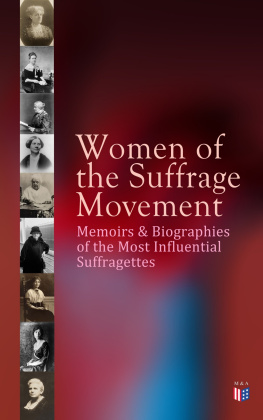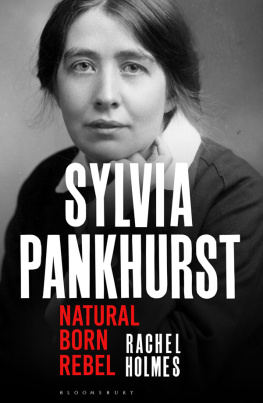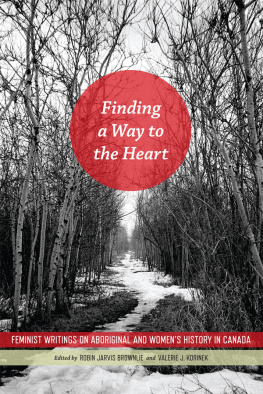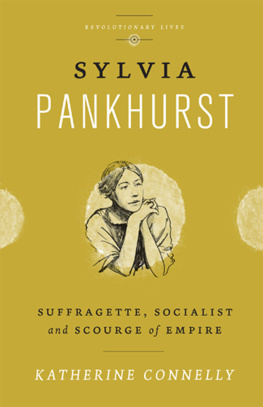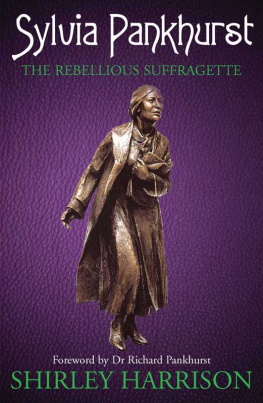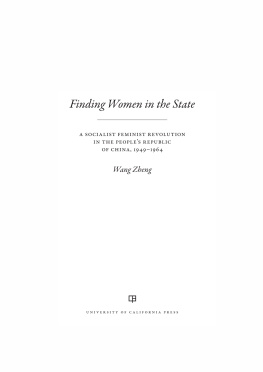Contents

Sylvia Pankhurst
Sylvia Pankhurst
Sexual politics and political activism
Barbara Winslow
Foreword by Sheila Rowbotham

This edition first published by Verso 2021
First published by UCL Press 1996
Reprinted by Routledge 2003
Barbara Winslow 1996, 2003, 2021
Foreword Sheila Rowbotham 1996, 2003, 2021
All rights reserved
The moral rights of the authors have been asserted
1 3 5 7 9 10 8 6 4 2
Verso
UK: 6 Meard Street, London W1F 0EG
US: 20 Jay Street, Suite 1010, Brooklyn, NY 11201
versobooks.com
Verso is the imprint of New Left Books
ISBN-13: 978-1-83976-162-1
ISBN-13: 978-1-83976-164-5 (US EBK)
ISBN-13: 978-1-83976-163-8 (UK EBK)
British Library Cataloguing in Publication Data
A catalogue record for this book is available from the British Library
Library of Congress Cataloging-in-Publication Data
Names: Winslow, Barbara, 1945 author. | Rowbotham, Sheila, writer of introduction.
Title: Sylvia Pankhurst : sexual politics and political activism / Barbara Winslow, Medger Evers College, City University of New York; foreword by Sheila Rowbotham.
Description: London; Brooklyn, NY : Verso, 2021. | Series: Feminist classics | First published by UCL Press 1996 Title page verso. | Includes bibliographical references and index. | Summary: In this illuminating political biography, historian Barbara Winslow recovers Sylvia Pankhursts life and work for a new generation of socialists and feminists. From Pankhursts organizing with immigrant and working women in Londons East End to her revolutionary communism, growing internationalism, and committed anti-fascism, Winslow gives us the story of a brilliantly inspiring unorthodox feminist and unorthodox socialist Provided by publisher.
Identifiers: LCCN 2021009125 (print) | LCCN 2021009126 (ebook) | ISBN 9781839761621 (paperback) | ISBN 9781839761645 (ebk)
Subjects: LCSH: Pankhurst, E. Sylvia (Estelle Sylvia), 18821960. | Suffragists Great Britain Biography. | Feminists Great Britain Biography.
Classification: LCC HQ1595.P34 W56 2021 (print) | LCC HQ1595.P34 (ebook) | DDC 305.42092 [B] dc23
LC record available at https://lccn.loc.gov/2021009125
LC ebook record available at https://lccn.loc.gov/2021009126
Typeset in Sabon
Printed and bound by CPI Group (UK) Ltd, Croydon CR0 4YY
For Jessie and Samantha

Contents

A political biography of Sylvia Pankhurst is long overdue. For a figure who made her mark on history first as a suffrage leader and then as a recalcitrant left-wing communist, she has received relatively little serious consideration as a political innovator. Part of the problem has been that the two Sylvia Pankhursts became lodged quite separately in the historical memory. Historians of feminism have focused on the suffrage movement; while labour historians have noted her role in the formation of the Communist Party and her famous dispute with Lenin, in which she was branded an ultra-leftist. Sliced in two, like the lady in the conjurers box, the whole Sylvia has proved elusive.
Barbara Winslows biographical examination of her politics, in contrast, spans both periods of Pankhursts activism and describes in depth the anti-war organizing that connects the two. She tackles head on the paradox in Pankhursts politics: the shift from the agitation for the vote to a socialist and anti-imperialist commitment, in which gender hardly features. Her account reveals continuities of approach as well as the manner in which force of circumstance was to wrench apart interconnections between socialism and feminism. This study of Sylvia Pankhurst illuminates wider questions, which were to become buried, about how gender and class were being articulated by radicals in the early years of the twentieth century.
Sylvia Pankhurst rejected the feminism that, in the course of the struggle for the vote, her sister Christabel and her mother Emmeline came to adopt. This was a form of feminism that subordinated all other kinds of social oppression to the unequal relationship between men and women. Instead, Sylvia Pankhurst sought to connect the emancipation of women with the emancipation of the working class and the colonial peoples subjected to imperialism. In attempting to combine socialism and feminism, she developed demands that took account of the specific needs of working-class women, which she recognized as distinct from the middle-class women of her own circles who predominated in the suffrage movement. Barbara Winslow demonstrates how Sylvia Pankhurst was to act as the catalyst for the gendered class politics that began to emerge from grass-roots mobilization in Londons East End, among women whom most middle-class social reformers assumed were incapable of self-organization.
This divergence from the narrower view of feminism that prevailed in the organization formed by herself, her sister and her mother the Womens Social and Political Union (WSPU) was not easy. Not only did it entail a break with her family, it also meant being excluded from the organization for which she had sacrificed her artistic career, her health and her youth. Yet, when Sylvia Pankhurst looked out at the shabby streets around the Old Ford Road, she simply did not see the world in Christabels Manichaean terms a world of masculine evil and female victimization. The working-class men who supported the suffrage movement were oppressed too and there were socialist men prepared to struggle for womens rights. Her refusal to break with the labour movement aroused Christabels fury and led to her expulsion from the WSPU.
There is always an element of mystery in the factors that bring individuals of broadly similar backgrounds to make very different political and personal choices. Barbara Winslow notes Sylvias admiration for her father, Richard Pankhurst, and her close and loving relationship with Keir Hardie, as well as her political collaboration with George Lansbury in East London.
Sylvia Pankhurst, as a member of the formidable Pankhurst family, was in a high-profile position, but she was not, of course, entirely alone. Many other women struggled to connect feminism and socialism. The emergence of a militant suffrage movement before the First World War created a tactical and theoretical turmoil among socialists of all species. They had to decide whether to go for the limited measure of votes for women on the same terms as men or the wider demand for adult suffrage, which, although more democratic, was arguably unrealistic. This choice between the possible and the principle created numerous splits and disputes in socialist groupings, ranging from Fabians on the right to the Marxist sect of the Socialist Labour Party on the left. The suffrage movement also provoked arguments that went beyond womens issues: raising the conflicting claims of individual rights and collectivist concepts of society as an organism; the significance of Parliament or of workplace emancipation; and the extent to which political organizations could have a line on all issues and aspects of personal experience.
It was to be the Independent Labour Party (ILP), however, the group to which the Pankhurst family was so closely linked, that was to be most deeply affected by the challenge presented by the womens movement. It was not just the split between the ILP and the WSPU but the impact of feminism within the ILP itself; for when the Pankhursts left some women continued to work from within. Among them were Isabella Ford, a middle-class feminist and socialist ILPer in Leeds who gravitated towards the constitutionalists in the National Union of Womens Suffrage Societies (NUWSS) and worked for a labour suffrage alliance when Christabel was denouncing the labour movement.

